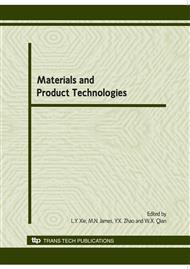p.289
p.294
p.299
p.304
p.309
p.314
p.319
p.327
p.332
Effect of Type-II and Type-III PMs on Operational Reliability of Buses
Abstract:
This paper deals with modeling the operational reliability of a bus fleet. The operational reliability is represented by the rate of occurrence of minor failures. A power-law failure point process model with the cumulative numbers of type-II and type-III preventive maintenance (PM) as covariates is fitted to a set of real-world data. We evaluate the effect of these two types of PM on minor failures of buses using the fitted model. This provides a method to quantitatively evaluate the effectiveness of a kind of PM actions.
Info:
Periodical:
Pages:
309-313
Citation:
Online since:
June 2010
Authors:
Price:
Сopyright:
© 2010 Trans Tech Publications Ltd. All Rights Reserved
Share:
Citation:


